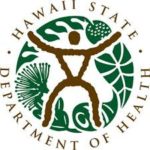
The Hawaiʻi Department of Health (DOH) issued a medical advisory recommending that moderately to severely immunocompromised individuals should receive an additional dose of mRNA COVID-19 vaccine after the initial two doses. The additional dose should be given at least 28 days after a second dose of the Pfizer-BioNTech COVID-19 vaccine or Moderna COVID-19 vaccine.
This recommendation is in line with the Centers for Disease Control and Prevention’s (CDC) Advisory Committee on Immunization Practices.
Additional doses or booster shots are not recommended for the general public at this time.
In a press release State Epidemiologist Dr. Sara Kemble said, “Immunocompromised individuals are especially vulnerable to COVID-19, as they may not build sufficient immunity from the initial two-shot series of mRNA vaccines. At this time, additional doses are only recommended for this limited segment of the population.”
Immunocompromised individuals may discuss with their healthcare provider whether receiving an additional dose is appropriate for them. Qualifying conditions and treatments include but are not limited to:
- Active treatment for solid tumor and hematologic malignancies
- Receipt of solid-organ transplant and taking immunosuppressive therapy
- Receipt of CAR-T-cell or hematopoietic stem cell transplant (within 2 years of transplantation or taking immunosuppression therapy)
- Moderate or severe primary immunodeficiency (e.g., DiGeorge syndrome, Wiskott-Aldrich syndrome)
- Advanced or untreated HIV infection
- Active treatment with high-dose corticosteroids (i.e., ≥20mg prednisone or equivalent per day), alkylating agents, antimetabolites, transplant-related immunosuppressive drugs, cancer chemotherapeutic agents classified as severely immunosuppressive, tumor-necrosis (TNF) blockers, and other biologic agents that are immunosuppressive or immunomodulatory.
Medical advisories are DOH’s official guidance to Hawaii healthcare providers. Click here to read the medical advisory.